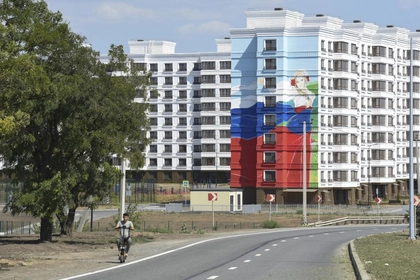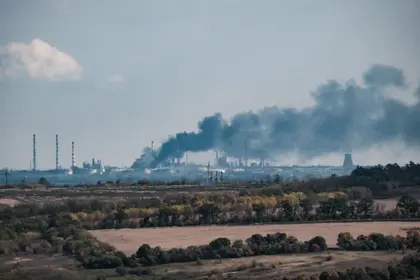Last winter, Russia bombarded Ukraine’s energy facilities with the aim of creating a collapse – cutting off electricity in cities and villages, leaving them without water and heat. The Kremlin’s plan was partly realized – Ukraine was blanketed with mass blackouts. But not totally.
JOIN US ON TELEGRAM
Follow our coverage of the war on the @Kyivpost_official.
Emergency power outages occurred during autumn, winter (2022) and the first months of spring (2023). In Ukrainian houses, there could be no electrical power for 3 or more hours a day. Instead, entrepreneurs bought generators, international partners helped to provide electricity to hospitals and other strategic facilities, people bought flashlights for their homes, gas appliances and didn’t lose hope.
With the onset of summer, the Ukrainian energy industry was no longer under the sights of the Russians. Therefore, active restoration work began. According to Energy Minister Herman Galushchenko, Russia has affected about 50 percent of the energy system.
“The 24 generation facilities are thermal power plants, hydro-thermal power plants and hydro-accumulating plants, about half of the substations of the transmission system and 43 percent of the trunk networks," he said in April.
As of today, more than 80 percent of the damaged facilities have been repaired, Prime Minister Denys Shmyhal said at the Forbes “Energy of Business” forum: “That’s why we enter this winter definitely restored, definitely ready for those attacks and that terror that was last winter."

Moscow Imposes Russian Car Insurance in Occupied Ukraine by 2025
Ukraine has received aid in the amount of $2.3 billion for the restoration and protection of the energy industry.
He believes that this winter, Ukraine has one of the biggest advantages – a significant number of air defense systems provided by international partners, and already gained experience in the fight against Russia.
But this does not mean that each strategic energy facility has a separate air defense system for protection. This has not yet been achieved, as confirmed at the forum by the chairman of the board of Ukrenergo, Volodymyr Kudrytskyi.
But instead of reducing the number of missiles used by the Russians, a new threat has appeared for the energy system.
“The key challenge today is the production of Shahed drones by the Russians,” Shmyhal believes. He said that the Russian army is currently using the strategy of exhausting Ukrainian air defenses with drone attacks.
“In the next few weeks, our air defense system will take into account the new tactics and strategy of the Russians. And, of course, we will fight it even better than last year,” Shmyhal said.
Kudrytskyi said: “We saw the evolution of the enemy’s strategy last season when they started with hundreds of missiles, obviously hoping that the power system would collapse.
“It took them 700-800 rockets to realize that this strategy was not working. Then they moved to more active use of drones on the energy infrastructure of large cities. And this is the threat that we need to take seriously,” Kudrytskyi said.
In addition, Shmyhal said that during the missile attack on Sept. 21 and the damage to the power system in the Rivne region, Russia began “the stage of energy terror in this heating season.”
Therefore, only a dense air defense system can save the energy sector this winter.
Kudrytskyi continued: “We'll see what will happen this winter. We do not know whether the Russians will resort to massive attacks specifically on the energy infrastructure or not.
“But, of course, we have an understanding of where they can hit, where there are objects with a higher probability of attack, where there is a lower probability,” he said.
“We keep this information private and do not share it. But we are preparing for different scenarios.”
At present, there are no scheduled power outages for the public.
You can also highlight the text and press Ctrl + Enter






